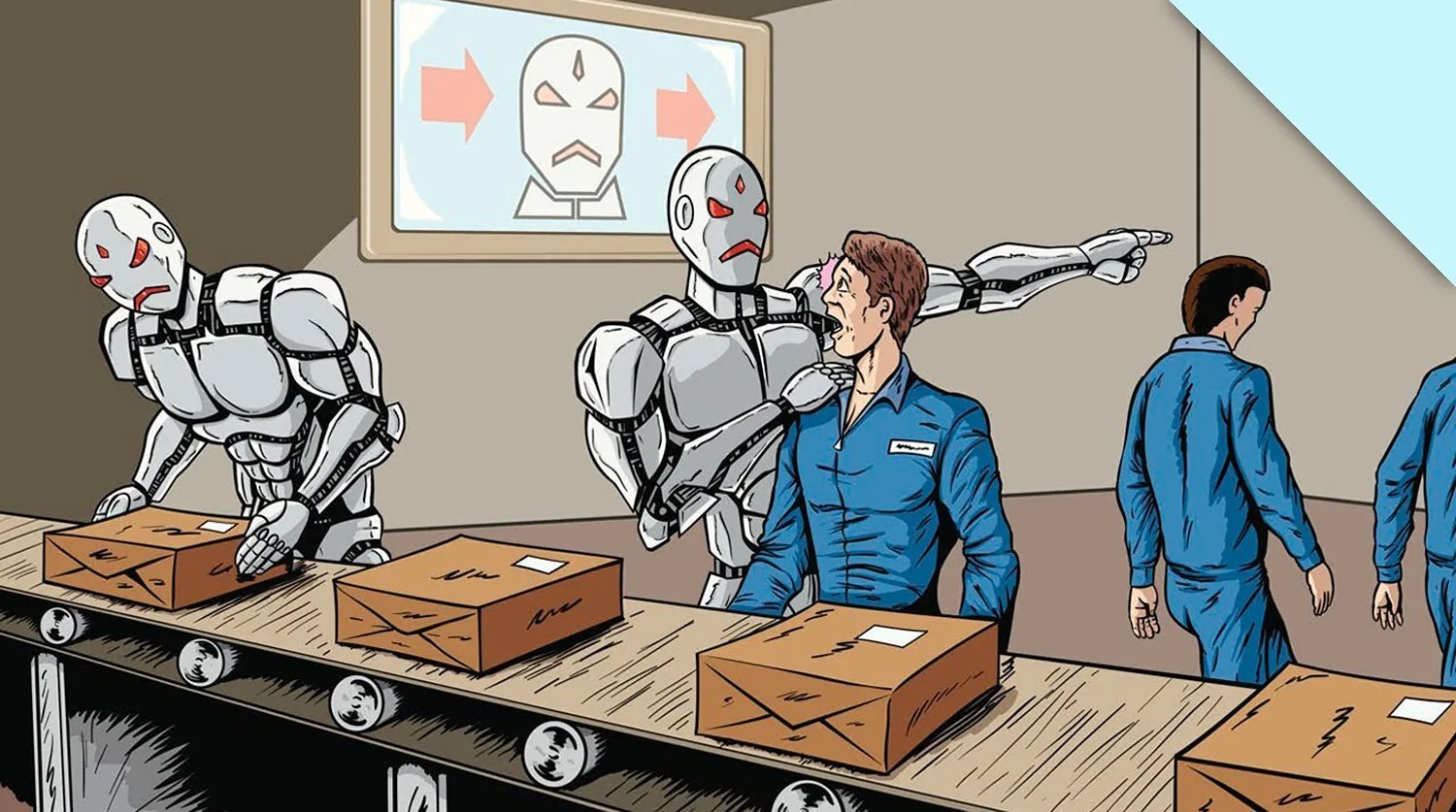AI will replace routine — freeing people for creativity.
That's what technological optimists have been saying for decades. But today, the reality is far more mundane: the widespread use of artificial intelligence (AI) is replacing people. The world of human labor is fading faster and more ruthlessly than we're used to. The problem is no longer just unemployment as a temporary phenomenon, but a system in which people, once laid off, have nowhere to go.
According to data from the world’s largest job board, Indeed, demand for IT jobs is rapidly declining. Backend development, testing, technical analysis — all of this is being automated faster than education systems can adapt. Since the end of 2022, global tech corporations have laid off more than 635,000 employees. Behind this figure are engineers, designers, analysts, UX specialists — people who, until recently, were considered the elite of the digital world.
These layoffs are not temporary. They reflect a structural shift in the logic of labor. GPT platforms, code generators, and automated data processing pipelines are making the traditional employment architecture obsolete. The key change is the speed. Technology is replacing people faster than governments, societies, and families can adapt.
This is precisely why the issue of universal basic income (UBI) is resurfacing — not as a utopian idea from leftist manifestos, but as a political mechanism to prevent the collapse of the social structure. In a world where even highly skilled labor is losing its uniqueness, a new question emerges: how can we ensure people have basic agency in a world where there’s no work for them?
Another paradox arises: layoffs are most common in sectors that were, until recently, considered the flagships of the "new economy." Technological progress, built by the hands of thousands of engineers, has become the very force pushing them out. In this sense, neural networks are not just changing the market — they are transforming the very notion of human usefulness. Right now — while replacement is happening in the upper tiers of professions — society must ask: who will be needed? And what will be the status of the rest?
Source – citation
The problem is that even those supposedly "freed for creativity" are now being squeezed by modern neural networks. After all, why pay a mid-level artisan-artist if a neural net can generate a more-or-less decent image with minimal cost? Voice actors encountered this same issue when it became clear that neural networks could already deliver passable voiceovers that closely resemble the original. No, it's not perfect yet — but give it a few years, and neural voiceovers will become the norm.
Naturally, in an environment where the state aims to reduce its basic obligations and the service sector is growing, the influx of "valuable creative professionals" into the labor market creates a permanent problem — one that will only worsen as neural networks (and in the future, quasi-AI) continue to evolve, bringing to life the grim forecasts of 1980s cyberpunk. It appears that within the capitalist system, this problem is unsolvable (as, indeed, are many others).

So if Bill Gates says it then it must be true and honest? Yeah, the Billionaire who uses Venture Philanthropy to hide his manipulating of the markets he just happens to also invest in, too?
Whatever man. He also gives tons money to Media outlets so no one ever criticises him. Why would they bite the hand that feeds them? Conflict of interest much?
Revealed: Documents Show Bill Gates Has Given $319 Million to Media Outlets](https://www.mintpressnews.com/documents-show-bill-gates-has-given-319-million-to-media-outlets/278943/)
Awards Directly to Media Outlets:
NPR- $24,663,066
The Guardian (including TheGuardian.org)- $12,951,391
Cascade Public Media – $10,895,016
Public Radio International (PRI.org/TheWorld.org)- $7,719,113
The Conversation- $6,664,271
Univision- $5,924,043
Der Spiegel (Germany)- $5,437,294
Project Syndicate- $5,280,186
Education Week – $4,898,240
WETA- $4,529,400
NBCUniversal Media- $4,373,500
Nation Media Group (Kenya) – $4,073,194
Le Monde (France)- $4,014,512
Bhekisisa (South Africa) – $3,990,182
El País – $3,968,184
BBC- $3,668,657
CNN- $3,600,000
KCET- $3,520,703
Population Communications International (population.org) – $3,500,000
The Daily Telegraph – $3,446,801
Chalkbeat – $2,672,491
The Education Post- $2,639,193
Rockhopper Productions (U.K.) – $2,480,392
Corporation for Public Broadcasting – $2,430,949
UpWorthy – $2,339,023
Financial Times – $2,309,845
The 74 Media- $2,275,344
Texas Tribune- $2,317,163
Punch (Nigeria) – $2,175,675
News Deeply – $1,612,122
The Atlantic- $1,403,453
Minnesota Public Radio- $1,290,898
YR Media- $1,125,000
The New Humanitarian- $1,046,457
Sheger FM (Ethiopia) – $1,004,600
Al-Jazeera- $1,000,000
ProPublica- $1,000,000
Crosscut Public Media – $810,000
Grist Magazine- $750,000
Kurzgesagt – $570,000
Educational Broadcasting Corp – $506,504
Classical 98.1 – $500,000
PBS – $499,997
Gannett – $499,651
Mail and Guardian (South Africa)- $492,974
Inside Higher Ed.- $439,910
BusinessDay (Nigeria) – $416,900
Medium.com – $412,000
Nutopia- $350,000
Independent Television Broadcasting Inc. – $300,000
Independent Television Service, Inc. – $300,000
Caixin Media (China) – $250,000
Pacific News Service – $225,000
National Journal – $220,638
Chronicle of Higher Education – $149,994
Belle and Wissell, Co. $100,000
Media Trust – $100,000
New York Public Radio – $77,290
KUOW – Puget Sound Public Radio – $5,310
Together, these donations total $166,216,526.
Completely irrelevant